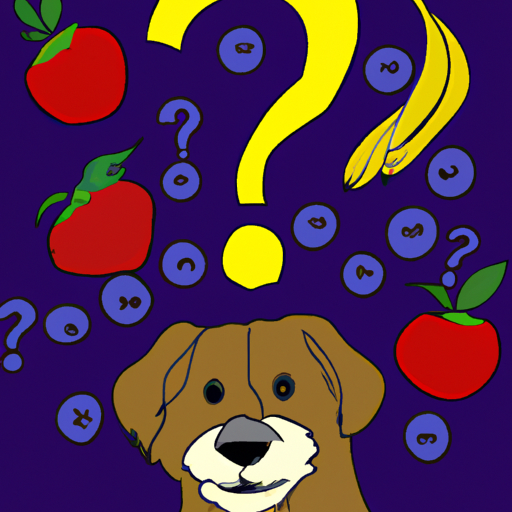As a loving caregiver, you’re always looking out for the best for your furry companion. You’ve probably wondered, “Are fruits safe for my dog?” or “What fruits should I be adding to my dog’s diet?”. In this comprehensive guide, we’ll delve into the world of fruits for dogs, highlighting those that are beneficial, and a few that should be avoided.
1. The Benefits of Fruits for Dogs
You know the importance of a well-balanced diet for your own health, and the same principle applies to your dog. Fruits can be a great source of vitamins, fiber, and antioxidants for your pet, supporting their overall wellness.
- Vitamins: Fruits are packed with vitamins like A, C, and K, which contribute to your dog’s immune health, skin health, and blood clotting capabilities respectively.
- Fiber: This helps with digestion and can aid in weight management.
- Antioxidants: These compounds help to counteract the effects of aging and disease.
However, not all fruits are created equal when it comes to our canine friends.
2. Five Fruits That Are Beneficial For Dogs
Here are some fruits that you can confidently add to your dog’s dietary repertoire:
- Apples: A great source of Vitamins A and C, as well as fiber. Remember to remove the seeds and core.
- Blueberries: These little gems are rich in antioxidants, fiber, and phytochemicals.
- Pears: Another good source of fiber and vitamins. Again, remove the seeds and core.
- Bananas: These are high in potassium and vitamins but can be high in sugar, so give in moderation.
- Watermelon: This hydrating fruit is packed with vitamins A, B6, and C. Ensure to remove the seeds and rind.
3. Fruits to Avoid
While fruits can be a wholesome addition to your dog’s diet, there are a few that should be avoided due to their potential toxicity:
- Grapes and Raisins: These can cause kidney failure in dogs.
- Cherries: The pits, stems, and leaves contain cyanide which is toxic to dogs.
- Avocados: They contain a toxin called persin which can cause vomiting and diarrhea in dogs.
4. How to Introduce Fruits to Your Dog’s Diet
When introducing any new food to your dog’s diet, it’s important to go slow. Start with small amounts and observe for any adverse reactions. If your dog tolerates the new fruit well, you can gradually increase the amount.
| Steps | Description |
|---|---|
| Step 1 | Choose one fruit to start with |
| Step 2 | Wash and prepare the fruit (remove seeds, pits, rind, etc.) |
| Step 3 | Give your dog a small piece and observe for any reactions |
| Step 4 | If well-tolerated, gradually increase the amount over several days |
5. Frequently Asked Questions
Can my dog eat fruits every day?
While fruits are beneficial, they should be given in moderation due to their sugar content. They should complement, not replace, a balanced diet.
Are canned fruits okay for dogs?
Canned fruits often contain added sugars or syrups, which are not good for dogs. Always opt for fresh fruits.
What if my dog accidentally consumes a toxic fruit?
If your dog ingests a fruit known to be toxic, contact your vet immediately.
Remember, every dog is unique. What works well for one might not for another. Always consult with your vet before making significant changes to your dog’s diet.



